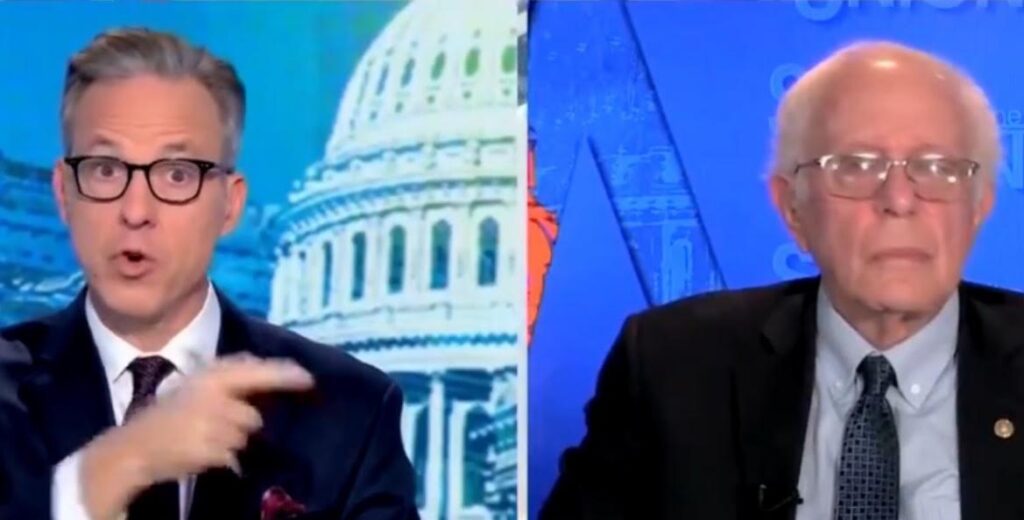In a recent interview on CNN’s “State of the Union,” Bernie Sanders addressed questions surrounding Vice President Kamala Harris’ apparent shift in her political positions, particularly regarding fracking and climate initiatives. Host Jake Tapper posed a direct inquiry about Harris’ change in stance, specifically highlighting her previous commitment to ban fracking during her 2019 presidential campaign, contrasted with her 2024 declaration that she would not impose such a ban. This inconsistency raised eyebrows, especially since Harris had earlier expressed that her concerns about fracking were motivated by the well-being of her family, especially her young nieces, reflecting how deeply she felt about environmental issues at that point in time.
Sanders was also asked to comment on Harris’s earlier support for the Green New Deal and “Medicare for All.” In 2019, she had declared her willingness to eliminate the filibuster to push through the Green New Deal legislation, which its proponents have argued is designed to promote widespread socio-economic changes alongside environmental sustainability. Critics argue, however, that the Green New Deal fundamentally seeks to advance socialist principles rather than merely environmental goals. This notion of socialism within major environmental policy proposals has often been a point of contention in political discourse.
Underlying the tension is the perception that the Democratic Party is facing an uphill battle in the current political landscape, particularly with Donald Trump as a formidable opponent. During the interview, Sanders suggested that Harris’s policy reversals were not genuine shifts in ideology but rather strategic moves aimed at electoral viability. He pointed to a coalition forming among establishment Democrats, progressive Democrats, and progressive Independents, all united by the common goal of defeating Trump, which essentially explains the need for political recalibration. He implied that aligning with a broader base necessitates certain compromises and narrative adjustments.
Furthermore, Sanders’ remarks allowed for a deeper exploration into the political complexities within the Democratic Party. While many progressive Democrat ideologies, like those championed by Sanders and Harris in previous years, advocate for sweeping reforms, the realities of running for office often compel candidates to moderate their positions in response to voter concerns and party dynamics. This raises pertinent questions about the integrity of political promises and the adaptability of politicians when faced with electoral prospects, ultimately challenging the expectations of constituents.
However, the criticism that Harris now faces reflects broader concerns regarding political fidelity, especially among younger and more progressive voters who initially rallied behind her ideals when she positioned herself as a candidate for change. As Tapper pressed Sanders on whether Harris was making an error by reversing these progressive stances, Sanders’ succinct response emphasized the central predicament: Harris is “just trying to get elected,” shedding light on the harsh realities of modern political campaigns where flexibility in policy positions may become necessary for survival in a highly polarized electorate.
In conclusion, the interview not only spotlighted Harris’s fluctuating policies but also opened a wider discussion about the challenges faced by politicians in balancing personal beliefs with electoral pragmatism. While Sanders defended Harris by framing her actions as politically motivated, it remains crucial for voters to consider the implications of such shifts. The electoral landscape, filled with complexities and competing interests, prompts a reevaluation of how political ideals align—or clash—with the necessity of winning elections in the face of formidable opposition.

